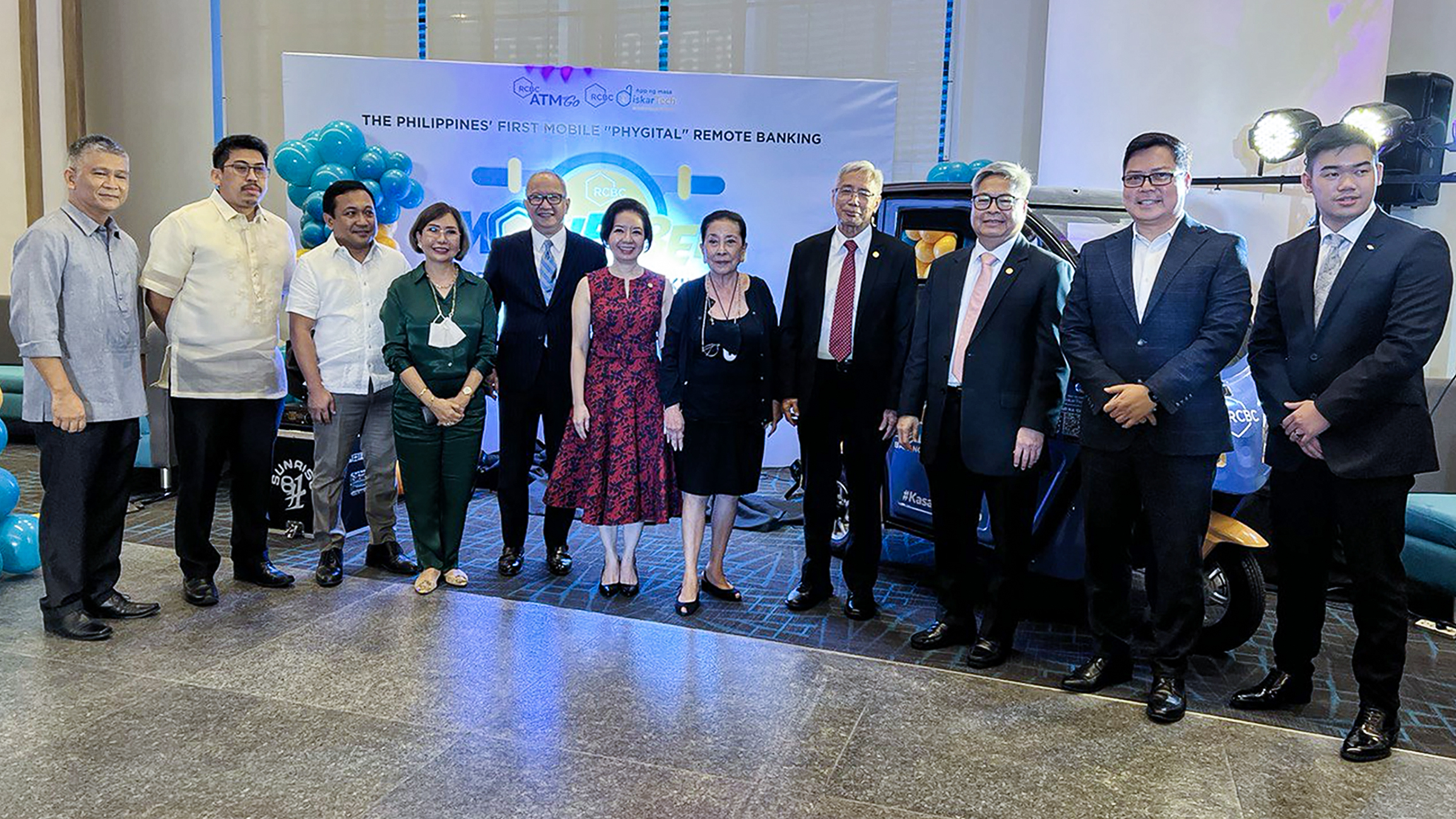By Business World
RIZAL COMMERCIAL Banking Corp. (RCBC) has launched its physical-digital banking service, MoneyBela Barangayan Banking, as part of its financial inclusion drive to cater to unbanked Filipinos in far-flung communities.
Launched on Monday evening, the country’s first mobile human-assisted remote banking service will be rolled out in 42,000 barangays nationwide, introducing Filipinos in rural areas to banking services bundled with agent-assisted financial education.
Sustainable e-tricycles will roam around unreached communities to offer services such as basic deposit account creation, bills payment, e-load, cash in or cash out, microinsurance, and telemedicine purchase through DiskarTech.
“A keyword in the name of our program — manibela, or the car’s steering wheel — serves as the main inspiration of RCBC’s innovations. Just like a manibela, we are optimistic to steer Filipinos’ lives toward a direction that is empowering, inclusive, and equal for all,” RCBC President and Chief Executive Officer Eugene S. Acevedo said.
“The latest financial inclusion innovation supports RCBC’s thrust in promoting ESG or the environment, social, and governance within the framework of the United Nations Sustainable Development Goals,” Mr. Acevedo said.
RCBC Executive Vice-President and Chief Innovation and Inclusion Officer Angelito “Lito” M. Villanueva said during MoneyBela’s launch that the bank is excited to partner with government agencies in advancing a digitally and financially inclusive future.
“The whole idea is for us to be able to penetrate even far-flung communities in the Philippines and we know for a fact that we still have quite a number of Filipinos that remain unbanked or underserved,” Mr. Villanueva told BusinessWorld on the sidelines.
“MoneyBela is a tool for us to be able to accelerate the realization of the twin goals of the central bank. It’s more of leveling the playing field, it’s more of providing equal access to everyone, it’s making sure no one is left behind,” he added.
The Bangko Sentral ng Pilipinas (BSP) wants to digitize at least 50% of the volume and value of total retail payments by 2023.
As of 2021, digital payments made up 30.3% of the total volume of retail transactions in the country from 20.1% a year earlier. Meanwhile, the value of payments done online represented 44.1% of total transactions last year, higher than the 26.8% share in 2020.
The BSP also wants 70% of Filipino adults to have formal financial accounts by 2023. The country’s banked population was at about 56% of all adults in 2021, up from just 29% in 2019, results of the central bank’s 2021 Financial Inclusion Survey showed.
“Of course, one of the challenges in digital infrastructure is connectivity,” Mr. Villanueva said, adding that the bank is working with the Department of Information and Communications Technology and the BSP to help address this.
He added that the active participation of local government units will be the key to MoneyBela’s success, noting they are partnering with the Department of the Interior and Local Government and the Liga ng Barangay.
Among the bank’s financial inclusion partners also include the Social Welfare and Development, Education, and Trade and Industry departments, the League of Provinces, Cities, and Municipalities, including the Cooperative Development Authority, and the National Youth Commission.
Among those who expressed their support for the project are BSP Governor Felipe M. Medalla and Finance Secretary Benjamin E. Diokno, who both commended RCBC for helping bring more Filipinos into the financial system at the launch.
RCBC’s consolidated net income rose by 84% year on year to P6.14 billion in the January to June period. This translated to a return on equity of 9.5%, while return on assets was at 1.1%.
See full post here.

